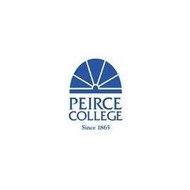Foundations in evidence based practice
(View Complete Item Description)This is a module framework. It can be viewed online for downloaded as a zip file. As taught in Spring Semester 2010. This module is taught on the Diploma/BSc in Nursing and covers an introduction to evidence-based practice; the nature of evidence; an introduction to the research process; reflective thinking and writing; portfolio development skills; searching/accessing information/literature; summarising literature; referencing literature sources; reviewing literature; an introduction to law and ethics and their links with evidence-based practice; an introduction to accountability and evidence-based practice Suitable for: Undergraduate year one students School of Nursing, Midwifery & Physiotherapy The School operates from education centres across Derbyshire, Lincolnshire and Nottinghamshire providing pre-registration, post-registration, degree and higher degree courses. Learning in practice occurs in acute and community settings within local NHS Health Care Trusts and across the voluntary and social service sectors. Research within the school focuses on supportive and palliative care; education and health informatics; mental health; and child and maternal health. The University received the best possible outcome in all categories within the Major Review of healthcare programmes which took place in 2006
Material Type: Syllabus




















